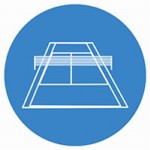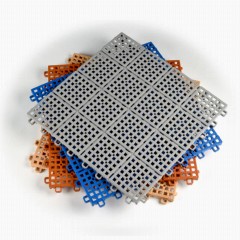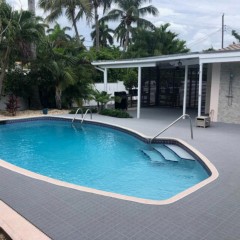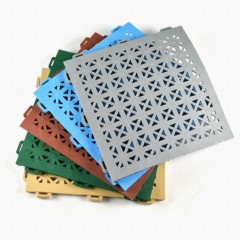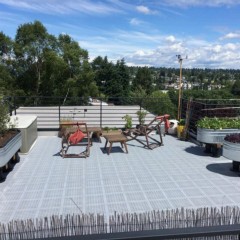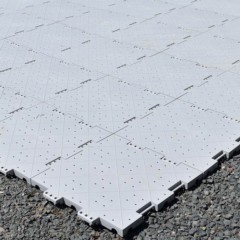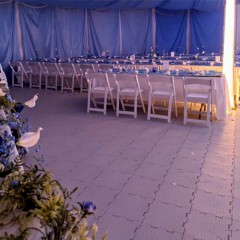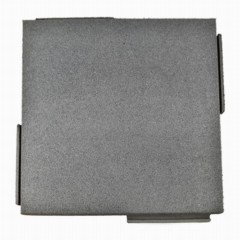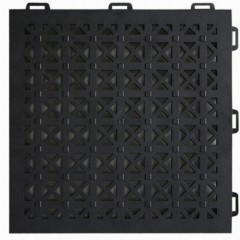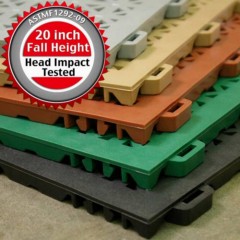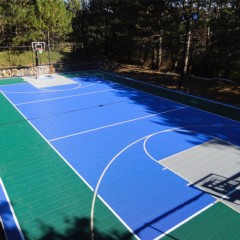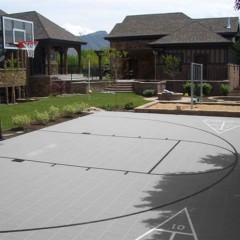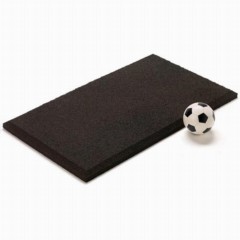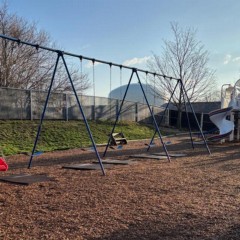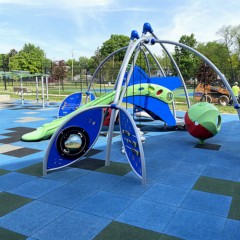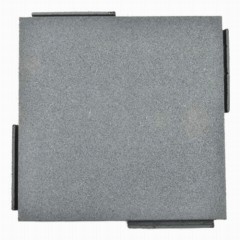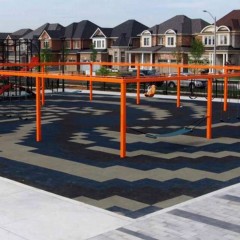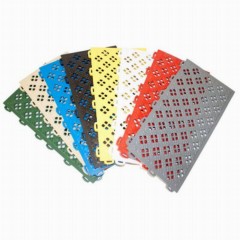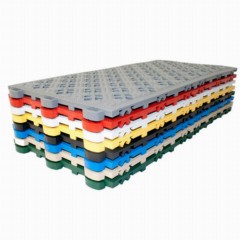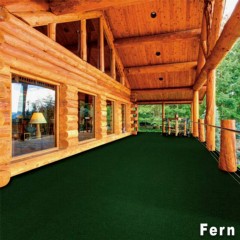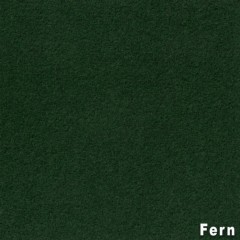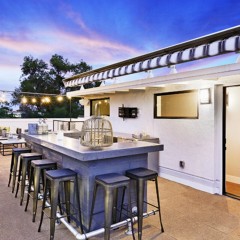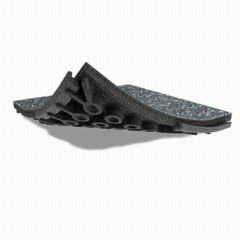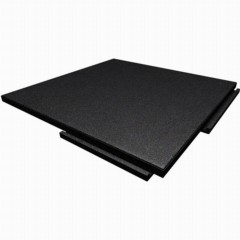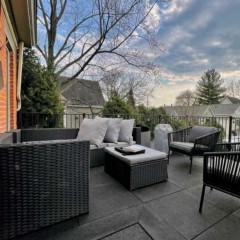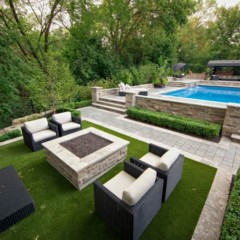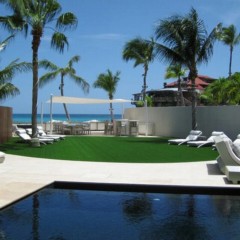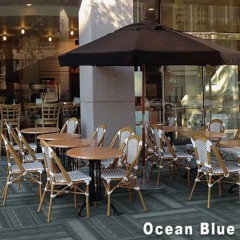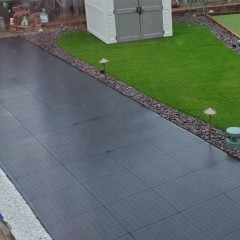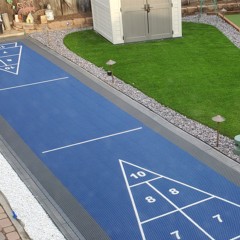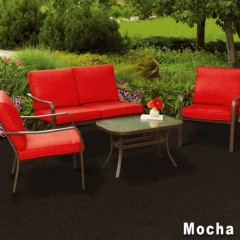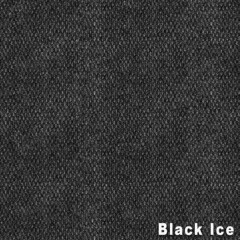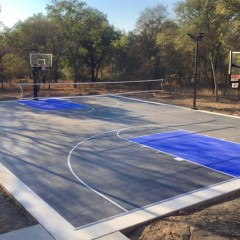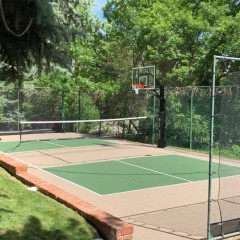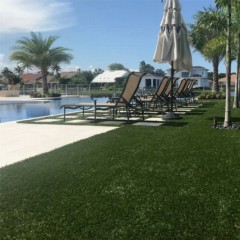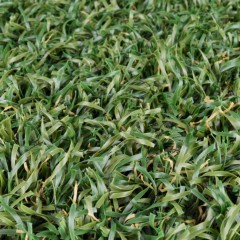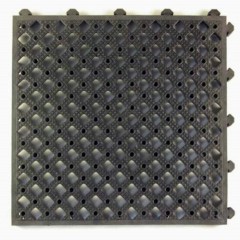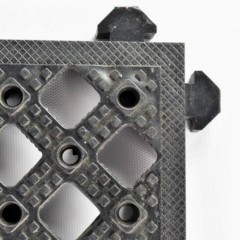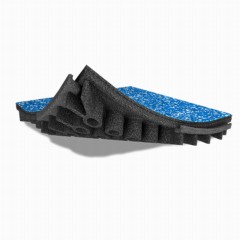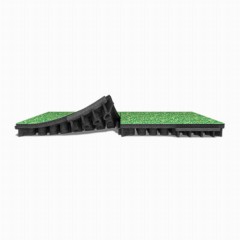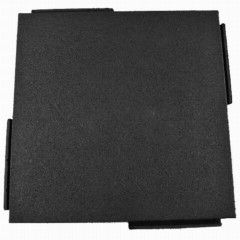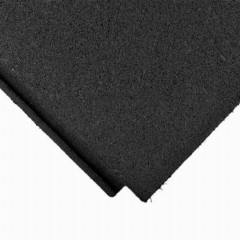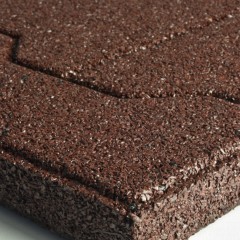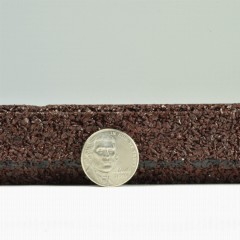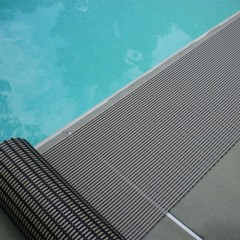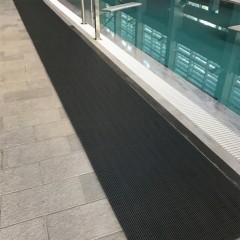Outdoor Flooring Options - Tiles, Mats & Rolls
When selecting outdoor flooring from Greatmats, you have multiple options to match your plans for the space. We offer several formats and sizes, so you can pick the perfect outdoor floor covering that aligns with the type of installation you want to do.
Our floor tiles for outdoor use can go over concrete, over grass, over dirt, and even over existing deck or patio floor spaces. They’re waterproof and often UV resistant, allowing them to continue looking great when left outside, even in harsh weather.
Types of Outdoor Flooring
Because we have multiple types of outdoor floors from which you can select, it’s easy to match the type with the use case you have in mind.
- Tiles: The tile format offers interlocking edges, which makes it easy to connect them in a DIY layout without needing glue.
- Mats: Mats are precut to a particular size, and they work well to protect specific outdoor areas, such as a section of grass from landscaping equipment. They can also be used under a swing on a playground.
- Rolls: With the roll format, you can cover a large area in a short amount of time, such as with artificial turf or pool area safety matting.
Outdoor Floor Materials
With different materials available, you can focus on comfort or durability – or a combination of both – in the flooring.
- Plastic: Rigid, durable plastics and PVC plastics with cushioning both feature waterproof capabilities, making them ideal for use in outside areas around water.
- Artificial turf: When you want the look of natural grass that stays green year-round, the blades of artificial turf are comfortable, durable, and look great.
- Carpet: Carpet tiles work nicely for residential or commercial outdoor patio flooring, providing a comfortable gathering area, as long as the carpeting is waterproof and weatherproof.
- Rubber: Rubber works well for protecting high-traffic outdoor floor areas, such as playgrounds, as well as flooring for rooftop decks or patios.
Where to Use Outdoor Flooring
One of the biggest reasons people select outdoor floor products is because of the multiple places where you can install them.
- Balcony: Creating a comfortable sitting area on a balcony
- Decks: Covering an existing older deck
- Events: Creating a sturdy floor for tables and chairs underneath a tent for an event
- Industrial: Installing a floor covering that can withstand rain, snow, oil, grease, or chemicals
- Landscaping: Creating an area that resembles grass without the need for maintenance
- Outdoor restaurants: Creating comfortable outdoor seating areas on restaurant patios
- Patios: Creating a new patio or covering an existing older patio
- Pet areas: Creating a dog run or a fenced-in area that is durable enough for use by dogs
- Playgrounds: Covering an entire playground space or protecting the area under certain equipment
- Pools: Covering existing pool decks to make the area safer in case of a fall
- Roadways: Using heavy-duty ground protection mats to create a temporary roadway anywhere
- Rooftops: Creating a rooftop patio
- Sheds: Adding a sturdy surface or an athletic court inside a shed with a gravel or dirt floor
- Athletic court: Covering a dirt or concrete area with sturdy flooring for basketball, tennis, or other sports
- Sports field: Creating sports fields or golf practice areas with artificial turf
- Walkways: Using ground protection mats or tiles to create a temporary walking path over grass or dirt
Benefits of Outdoor Flooring
Because we offer so many different types of outdoor flooring, you can find the perfect model that gives you multiple benefits like the following:
- Color options
- Comfort
- Durability in high-traffic areas
- Easy to install
- Easy to maintain and clean
- Eco-friendly by using recycled materials
- Fall protection
- Good value
- Long-lasting
- Permanent or temporary layouts
- Shock absorbing
- Slip resistance
- Style
- UV treatment
- Waterproof
Outdoor Flooring Q&A
What type of flooring is best for outdoor use?
When it comes to selecting the
best flooring for use outdoors, think about how you plan to create the space. Covering large spaces often works better with rolls, while tiles are great for ease of installation. Mats protect a particular sized area. Deciding whether you need temporary or permanent flooring is another key consideration.
What is the best tile for outdoor patio flooring?
You will find many flooring ideas for the patio at Greatmats! The
best tile for an outdoor patio is one that matches the planned use case for the space, your budget, and your installation requirements. Options consisting of PVC plastic with perforations to drain water away are popular, such as our
StayLock Perforated Tiles and our
Patio Outdoor Tiles.
What can I cover my old deck with?
We have many ideas for
outdoor flooring over an old deck, whether it’s wood or concrete. Rubber pavers, PVC tiles, outdoor carpets, and artificial turf products all make great deck flooring options and can give the old deck a refreshed look and feel that’s affordable and easy to install.
What kind of flooring can be used for an outdoor event?
Understand that some types of materials will do better than others in the elements, but, as a general rule, being waterproof is a significant advantage for
flooring for outdoor events. Waterproof temporary outdoor flooring that can go over grass or dirt is a good choice in certain circumstances.
What are the best flooring options for outdoor athletic courts?
Athletic court outdoor flooring typically works best with modular tiles that have perforations. Water can then drain through to the subfloor, ensuring slip resistance on the surface. Some perforated tiles offer a bit of cushioning along with durability to protect athletes’ lower body joints better than playing on concrete.
How do you install outdoor flooring over gravel, grass, or dirt?
Installing
outdoor floors over natural surfaces, rather than concrete, often requires a sturdy type of plastic that won’t sink into damp ground. Use click-together tiles or rolls that are easy to install and disassemble as a DIY job for delivering temporary flooring for the event.
 $3549 /Tile You Save 25%$8.87/sqftShips Out in 1-3 Working Days SustainableShop$1292 /Tile You Save 19%$9.29/sqftShop$10175 /Carton You Save 14%$1.70/sqftShips Out in 1-3 Working Days SustainableShop$5597 /Tile You Save 17%$13.99/sqftShop$3451 /Tile You Save 18%$8.63/sqftShop$398 /sqft You Save 20%Ships Out in 11-14 Working DaysShop$11067 /Carton You Save 14%$1.84/sqftShips Out in 1-3 Working Days SustainableShop$5445 /TileShips Out in 3-5 Working DaysShop$3749 /Carton You Save 14%$1.04/sqftShips Out in 1-3 Working Days SustainableShop$500 /Tile You Save 23%$5.00/sqftShop$491 /sqft You Save 15%Ships Out in 7-10 Working Days SustainableShop$2660 /Tile You Save 19%$9.60/sqftShips Out in 1-3 Working Days SustainableShop$5876 /Tile You Save 18%$14.69/sqftShop$3638 /Tile You Save 17%$9.10/sqftShop$3813 /Each You Save 19%$9.53/sqftShop$82314 /Roll You Save 15%$12.47/sqftShop
$3549 /Tile You Save 25%$8.87/sqftShips Out in 1-3 Working Days SustainableShop$1292 /Tile You Save 19%$9.29/sqftShop$10175 /Carton You Save 14%$1.70/sqftShips Out in 1-3 Working Days SustainableShop$5597 /Tile You Save 17%$13.99/sqftShop$3451 /Tile You Save 18%$8.63/sqftShop$398 /sqft You Save 20%Ships Out in 11-14 Working DaysShop$11067 /Carton You Save 14%$1.84/sqftShips Out in 1-3 Working Days SustainableShop$5445 /TileShips Out in 3-5 Working DaysShop$3749 /Carton You Save 14%$1.04/sqftShips Out in 1-3 Working Days SustainableShop$500 /Tile You Save 23%$5.00/sqftShop$491 /sqft You Save 15%Ships Out in 7-10 Working Days SustainableShop$2660 /Tile You Save 19%$9.60/sqftShips Out in 1-3 Working Days SustainableShop$5876 /Tile You Save 18%$14.69/sqftShop$3638 /Tile You Save 17%$9.10/sqftShop$3813 /Each You Save 19%$9.53/sqftShop$82314 /Roll You Save 15%$12.47/sqftShop


